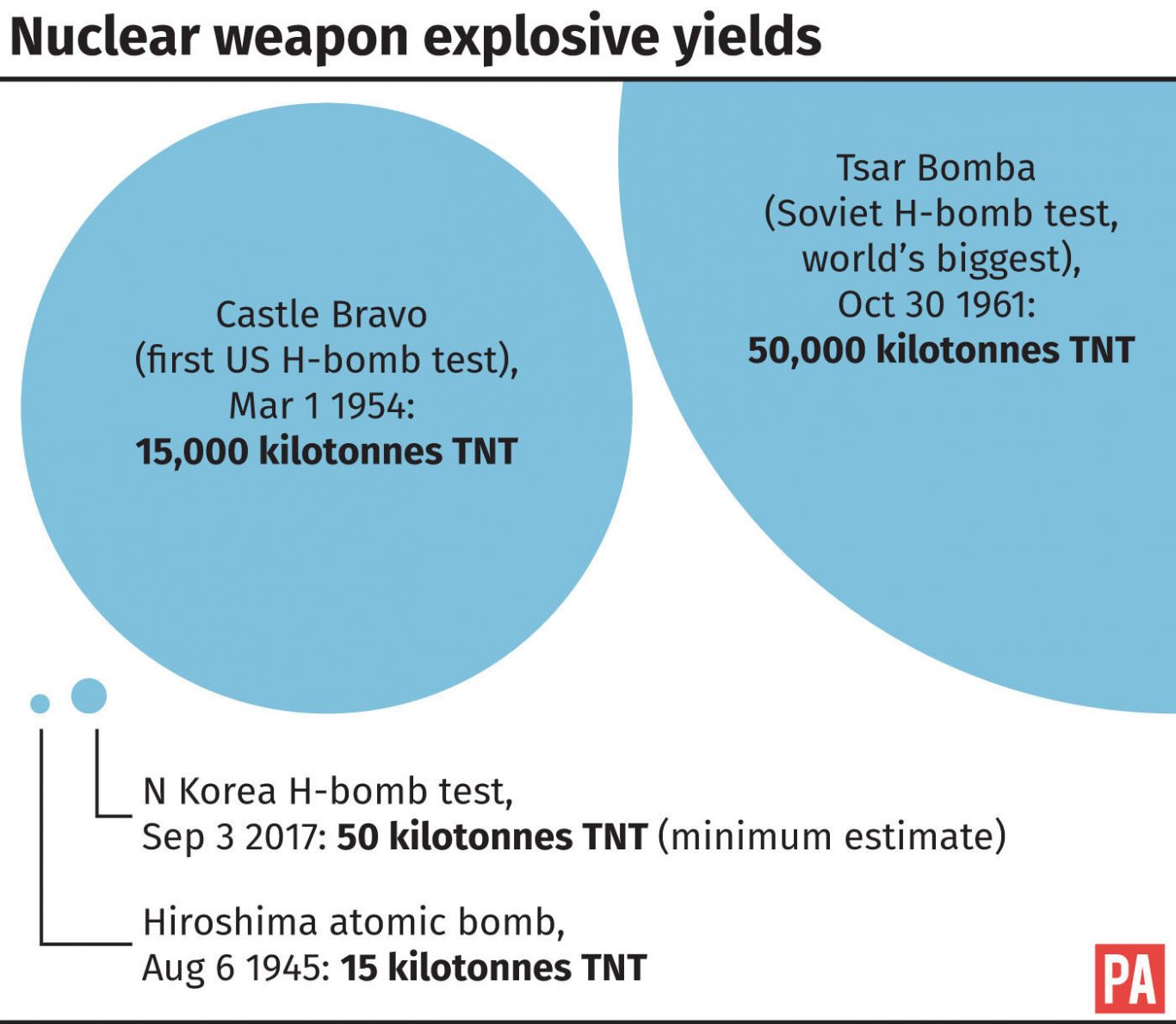UN experts accuse North Korea of illegally exporting £204m of goods
A report says Kim Jong Un’s government continues to flout sanctions on commodities, as well as an arms embargo.

North Korea illegally exported coal, iron and other commodities worth at least £204 million to China and other countries including India, Malaysia and Sri Lanka during a six-month period, in breach of United Nations sanctions, the world body says.
In a report released on Saturday, UN experts said Kim Jong Un’s government continued to flout sanctions on commodities, as well as an arms embargo and restrictions on shipping and financial activities, during the perios which ended in early August.
They said North Korea was also reportedly continuing banned nuclear activities with weapons-grade fissile material production at the Yongbyon nuclear complex, construction and maintenance at the Punggye-ri nuclear test site, and at a uranium mine in Pyongsan.

The eight-member panel of experts said it was also investigating the widespread presence of North Koreans in Africa and the Middle East, particularly in Syria, “including their involvement in prohibited activities”.
The experts said one inquiry is into “reported prohibited chemical, ballistic missile and conventional arms co-operation” between Syria and the Democratic People’s Republic of Korea, the country’s official name.
They said this included activities on Syrian Scud missile programmes and “maintenance and repair of Syrian surface-to-air missiles (SAM) air defence systems”.
The panel noted that two unnamed countries reported intercepting shipments destined for Syria. It did not identify the contents and said Syria had yet to respond to its inquiries.
The 111-page report was written before North Korea’s sixth and most powerful nuclear test last Sunday and its latest launch of a powerful new intermediate-range ballistic missile over Japan.
It was made public two days before the United States has called for a vote on a new sanctions resolution.
The original US draft would impose the toughest-yet sanctions on North Korea including banning all oil and natural gas exports to the country and freezing all foreign financial assets of the government and Kim.
The experts said implementation of existing sanctions “lags far behind what is necessary to achieve the core goal of denuclearisation” of the Korean peninsula.
They blamed “lax enforcement” of sanctions coupled North Korea’s “evolving evasion techniques” for undermining the achievement of this goal which would see the North abandon all weapons of mass destruction.
On the export of commodities – a key source of foreign exchange for the DPRK – the experts said that following China’s suspension of coal imports from the North in February, the DPRK has been rerouting coal to other countries including Malaysia and Vietnam.
The panel said imports of DPRK coal, iron and iron ore violate UN sanctions unless the countries have received an exemption.
Between December 2016 and May 2017, for example, the DPRK exported more than £60 million of iron ore to China, the report said. And between October 2016 and May 2017, it exported iron and steel products to Egypt, China, France, India, Ireland and Mexico, valued at £231,000.
Many DPRK financial institutions maintain representatives overseas who conduct transactions that facilitate prohibited programmes; many foreign financial institutions wittingly or unwittingly provide banking services to DPRK front companies and others engaged in prohibited activities; and foreign investments in DPRK banks or joint ventures give those banks access to funding and the international financial system.





